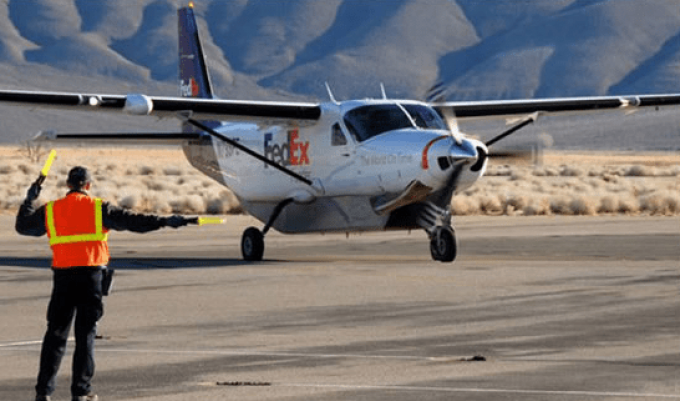FedEx to launch 'FedEx Easy Returns' at 3,000 locations, supported by Blue Yonder
PRESS RELEASE 25 March 2025 FedEx to Launch FedEx Easy Returns at 3,000 Locations Across the US, ...

FedEx Express has launched a pilot training scheme as one airline association warns of a “endemic” pilot shortage across the US.
The express operator’s Purple Runway programme will assist feeder carriers Mountain Air Cargo and Empire Airlines in recruiting and developing pilots.
FedEx chief executive Fred Smith said the programme would play an “important role in the continuing success” of both the company and its third-party feeder carriers.
“FedEx is initiating a new, industry-leading development programme to ensure a full pipeline of pilots for ...
Maersk u-turn as port congestion increases across Northern Europe
Apple logistics chief Gal Dayan quits to join forwarding group
Maersk Air Cargo sees volumes fall as it aims for 'margin in favour of revenue'
Houthis tell Trump they will end attacks on Red Sea shipping
Transpac rates hold firm as capacity is diverted to Asia-Europe lanes
Airlines slash freighter capacity post-de minimis, but 'the worst is yet to come'
MSC revamps east-west network as alliance strategies on blanking vary
India-Pakistan 'tit-for-tat' cargo ban sparks sudden supply chain shocks

Comment on this article
Sherman Kensinga
April 04, 2018 at 1:12 amNo, pilot lifetime earnings are not “higher than ever”, they are certainly the lowest they have ever been. From decades suffering at the new regionals, to pay at majors just rising from pay negotiated in bankruptcy, to loss of huge pensions, it is at a record low and unlikely to rise long-term. Plus, airline pilots are flying more hours, more nights and weekends and holidays, than ever before. Cheaper hotels, cheaper benefits, tough and unpredictable schedules, no comparison to doctors or lawyers. Law schools and med schools are also expensive, and they are full, because the career is worth it.
American kids stopped going into commercial flight schools because the career isn’t worth it. The internet and flow of information killed the supply of pilots. The reality of the aviation industry cutting pilot labor costs below what can attract young people, killed the supply of pilots.
The 1,500-hour rule is certainly not a factor. Until relatively recently, major airlines and cargo would not take an application from a pilot with less than 3,000 hours. That dropped to 2,000 hours in the ’90s when airlines hired hard for years. It was a hard job to get and young climbed higher hurdles than they have now, because the job was worth it. If the 1,500-hour rule is eliminated, a few hundred pilots will leave their instructing positions at all the big flight academies, and they will shut down. They are already down to less than half the instructors they need, most stay less than a year.